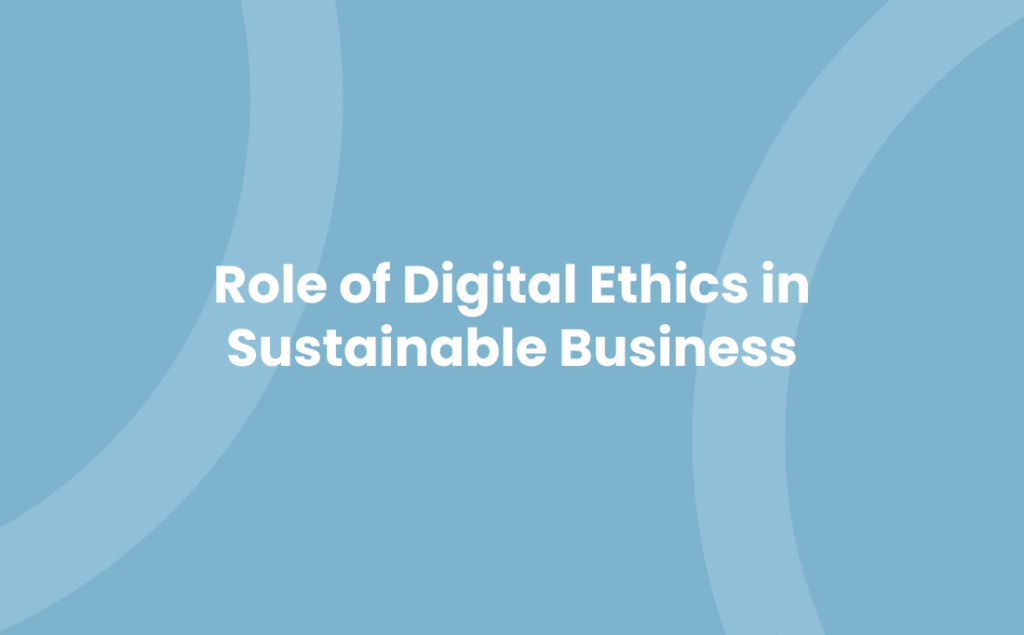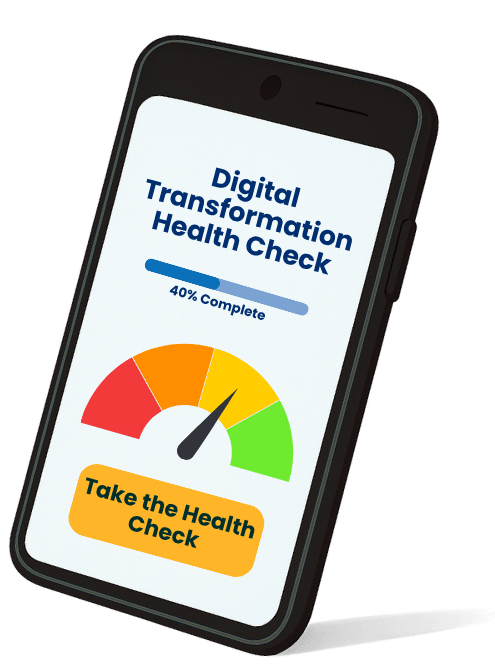In the age of rapid technological evolution, digital transformation isn’t just a buzzword‚ it’s a critical reality for businesses across the globe. But as we embrace this digital era, there’s another equally important aspect that often gets overlooked — what is digital ethics.
What is digital ethics? Simply put, digital ethics is the cornerstone of responsible digitalisation. It ensures that technology serves humanity and not the other way around. It’s about making sure that as we progress digitally, we don’t lose sight of our moral compass.
So, let’s delve into the fascinating world of digital transformation and digital ethics. We’ll explore their intertwined relationship and why it’s crucial for businesses to balance the two for sustainable growth. Hold tight, you’re about to embark on an enlightening journey.
Understanding Digital Transformation
Digital transformation isn’t just a spiel. It presents an opportunity to exploit technology for your business gains. This shift crosses sectors, with companies applying technology to current processes, consumer interactions, and business models to invigorate their operations and deliver superior value.
Opting for digital transformation might seem like a walk in the park. But it packs a punch of challenges. Adopting new tech is just the tip of the iceberg. Comprehensive change, from integrating technology into every facet of business to fostering a culture of continuous innovation is what this transformation truly demands.
Digital transformation, at its very core, stands for the grand shift from traditional processes to digital ones. It’s about becoming a ‘digital first’ entity, adopting technology as the primary means to carry out all business-related activities. Examples include automating customer services, leveraging AI in operations, or even using Big Data for informed decision-making.
Embracing digital transformation propels growth and when used effectively, can furnish tremendous gains. Increased efficiency, improved customer experience, and vast market reach are some perks of adopting digital transformation.
The Crucial Role of Digital Ethics
Sure, the benefits of digital transformation tickle your fancy but tread carefully. Remember the coin of digital transformation flips to reveal a pressing concern — digital ethics. So as you step into the digital arena, implementing digital transformation ethics and adhering to digital ethics guidelines isn’t an option, but an obligation.
Digital transformation ushers in new opportunities, bona fide. But this modern arena deserves ethical rules of its own. Without clear digital ethics, your high-tech playground can quickly spiral into a pandemonium of ethical scandals and tech disasters.
Your goal isn’t simple digitisation, but a transformation that merges tech with ethics, streamlining operations whilst preserving integrity, and shaping a business that’s not at odds with its ethical compass.
Digital Ethics: A Brief Overview
Throughout your journey in digital transformation, one crucial aspect that might puzzle you is, “what is digital ethics?” It forms an integral part of the digital realm, often demanding equal attention to the digital transformation efforts.
Essentially, digital ethics revolves around acceptable and non-acceptable behaviours in a digital world. It encompasses the guiding principles that dictate what’s right and wrong in the digital frontier. Digital ethics stands as a compass, positively directing the advancement of technology. They serve as guidelines for businesses to navigate through the winding digital transformation journey.
Consider digital ethics as a handbook to help your business make better, ethically sound decisions while venturing into the world of digital transformation. For instance, privacy concerns form an integral part of this ethical discussion. With privacy breaches making headlines on numerous occasions, a firm understanding of what is digital ethics becomes paramount.
The unethical handling of data can severely impact a business’s reputation, leading to potential financial penalties. Hence, businesses align their digital transformation projects with digital ethics right from the planning stages. This approach involves ensuring that technologies such as Artificial Intelligence (AI), Machine Learning (ML), and Big Data are utilised ethically.
Conveying the importance of digital ethics is not merely about sounding an alarm concerning potential pitfalls in the digital journey. It also emphasizes creating a safe and trusted digital environment — one where businesses can operate with confidence and users can engage without fear. It also allows for better acceptance of the digital processes in place, fostering smoother digital transformation.
To embrace digital ethics effectively, it’s beneficial to be aware of digital ethics guidelines. Discovering and adhering to these can drive your business’s ethical approach to its digital strategies. They aren’t just a beneficial tool to help businesses stay digitally aligned; indeed, they set out the path for businesses aspiring to realise the full potential of their digital transformation while ensuring that ethical standards aren’t compromised along the journey.
Understanding what is digital ethics and their role in digital transformation acts as a stepping stone into a successful digital transition. It’s about finding the balance — the harmony between phenomenal digital advances and the ethical boundaries that keep the digital world trustworthy and safe. Remember, in the world of digital transformation, technological capability and ethical responsibilities walk hand in hand.



